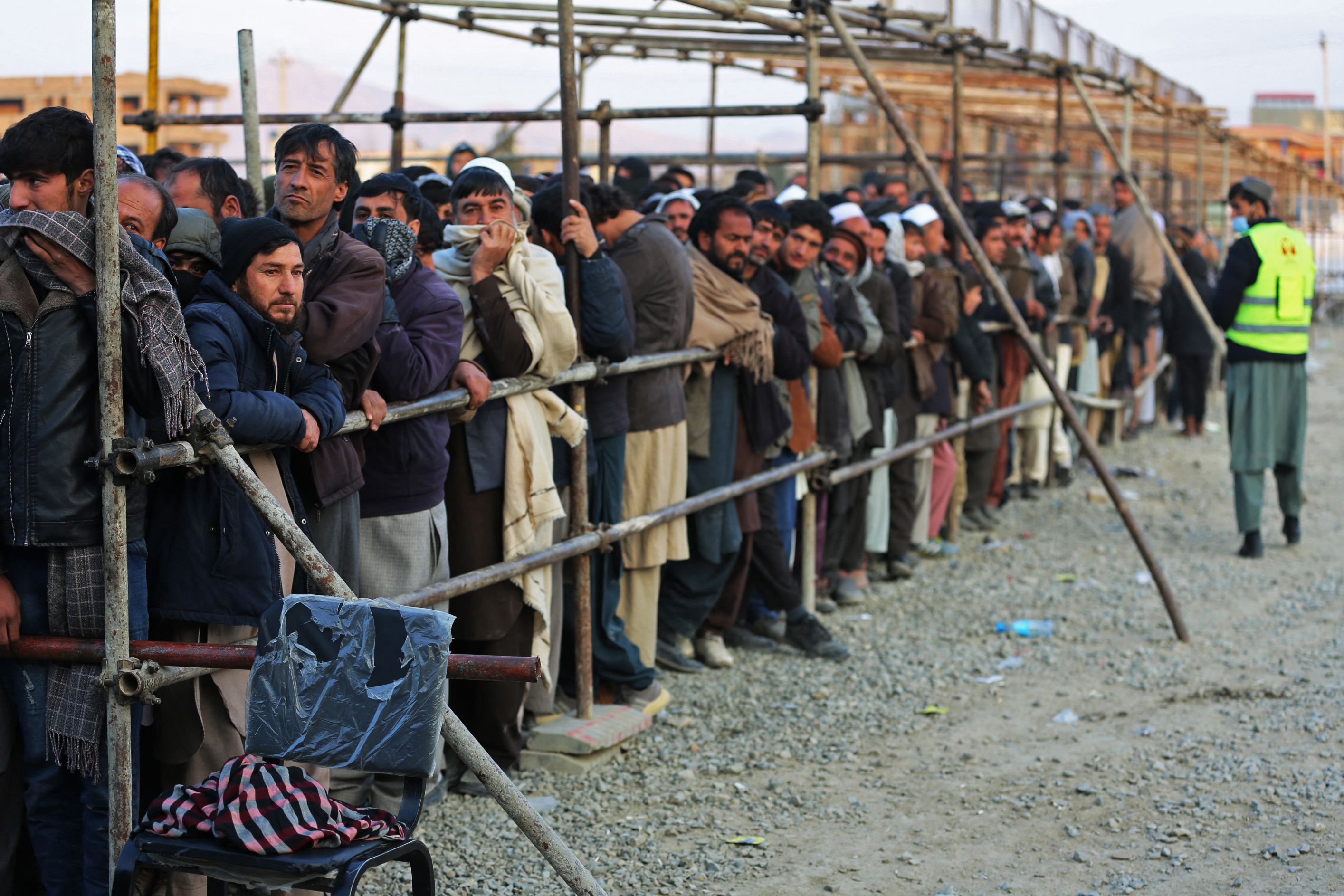Your support helps us to tell the story
From reproductive rights to climate change to Big Tech, The Independent is on the ground when the story is developing. Whether it's investigating the financials of Elon Musk's pro-Trump PAC or producing our latest documentary, 'The A Word', which shines a light on the American women fighting for reproductive rights, we know how important it is to parse out the facts from the messaging.
At such a critical moment in US history, we need reporters on the ground. Your donation allows us to keep sending journalists to speak to both sides of the story.
The Independent is trusted by Americans across the entire political spectrum. And unlike many other quality news outlets, we choose not to lock Americans out of our reporting and analysis with paywalls. We believe quality journalism should be available to everyone, paid for by those who can afford it.
Your support makes all the difference.Several international non-profits have suspended their operations in Afghanistan after the Taliban ordered them to stop women employees from working.
The militant group’s order threatened the NGOs after it said there were “serious complaints” about the dress code of women employees on Saturday.
The move was met with severe backlash and on Monday, at least four international non-profits issued statements highlighting the crucial nature of the role of women in providing aid to the country’s needy.
Save the Children, Norwegian Refugee Council, CARE International and the International Rescue Committee (IRC) have said they will wind up operations in Afghanistan.
“We cannot effectively reach children, women and men in desperate need in Afghanistan without our female staff,” the first three NGOs said in a joint statement.
“Without women driving our response, we would not have jointly reached millions of Afghans in need since August 2021,” it added.

“With Afghanistan in the midst of a worsening humanitarian crisis and economic collapse, humanitarian actors have been essential in saving lives in the country over the course of the past year,” the IRC said in a separate statement.
“None of that would have been possible without female humanitarian workers,” it said, pointing out that it had worked in the country since 1988.
“For IRC our ability to deliver services rely on female staff at all levels of our organisation. If we are not allowed to employ women, we are not able to deliver to those in need. Therefore, the IRC is currently suspending our services in Afghanistan,” it added.
The non-profit also said the exclusion of women from humanitarian service delivery holds “catastrophic consequences for the Afghan people because our services depend on women workers”.
The latest policy decree can likely have devastating consequences for millions of Afghans who depend on aid as the country moves on to a cold winter.
The acting head of the United Nations Assistance Mission in Afghanistan (UNAMA) Ramiz Alakbarov met the Taliban’s acting economics minister Mohammad Hanif to urge him to reverse the decision.
“Millions of Afghans need humanitarian assistance and removing barriers is vital,” UNAMA said in a statement.
The Taliban, however, has dismissed concerns from the NGOs.
“We do not allow anyone to talk rubbish or make threats regarding the decisions of our leaders under the title of humanitarian aid,” tweeted the militant group’s spokesperson Zabihullah Mujahid.
This is the second harsh policy decision taken against Afghanistan’s women by the new rulers who seized power last year after US troops left the country.
Days earlier, the Taliban administration decreed women could no longer obtain higher education.
Some accounts revealed by The Independent said Taliban guards had even pointed guns at women near college and university gates.
The policies against women show a clear reversal by the Taliban from its earlier comments saying their rule this time would be more moderate in nature and fair to women compared to the Nineties.

Join our commenting forum
Join thought-provoking conversations, follow other Independent readers and see their replies
Comments